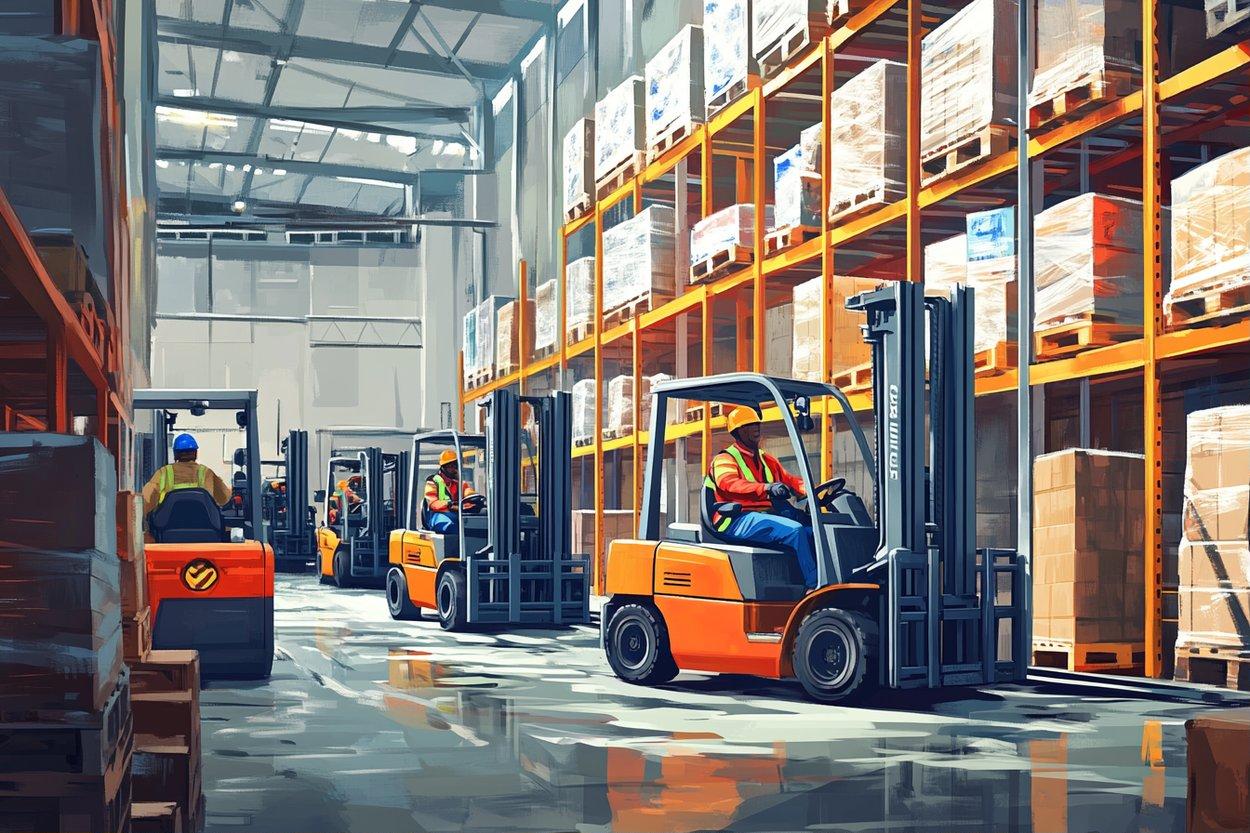Navigating a Career in Forklift Operations: Warehouse Insights
Explore the dynamic world of forklift operations in modern warehousing. This comprehensive guide delves into the qualifications, growth potential, and industry outlook for aspiring forklift operators. Discover how this pivotal role in logistics combines technical skill with strategic importance, offering a pathway to stable employment and potential career advancement in the ever-evolving distribution sector.

Mastering the Art of Forklift Operations: A Comprehensive Career Guide
Entering the Field: Essential Qualifications
Embarking on a career in forklift operations requires specific credentials and training. Most positions necessitate a high school diploma or equivalent, coupled with an OSHA-approved forklift certification. This specialized training typically encompasses both theoretical knowledge and practical application. While many employers offer on-the-job training, possessing prior certification can significantly enhance your candidacy in this competitive field.
Charting Your Career Trajectory
The realm of forklift operations serves as a launching pad for diverse career paths within logistics and warehouse management. Seasoned operators often transition into leadership roles, supervisory positions, or specialize in advanced equipment operation. Some professionals leverage their experience to ascend to warehouse management or pivot into logistics coordination, illustrating the potential for substantial career evolution within the industry.
Understanding Compensation Structures
Remuneration for forklift operators varies based on factors such as experience, geographical location, and industry segment. Consider the following general compensation framework:
| Career Stage | Typical Annual Earnings | Standard Benefits Package |
|---|---|---|
| Novice | $30,000 - $35,000 | Basic health coverage, paid leave |
| Mid-Career | $35,000 - $45,000 | Expanded health benefits, retirement plans |
| Veteran/Leadership | $45,000 - $55,000 | Comprehensive benefits, performance incentives |
Note: Financial figures and benefit packages are subject to change. It’s advisable to conduct thorough research before making career decisions.
Workplace Dynamics and Conditions
The warehouse environment typically operates continuously, offering flexible shift options. The role demands physical stamina, exceptional hand-eye coordination, and meticulous attention to detail. Contemporary warehouses often boast climate control and advanced safety systems, though strict adherence to safety protocols and proper use of protective equipment remain paramount.
Industry Prospects and Job Stability
The ongoing expansion of the logistics sector contributes to a steady demand for skilled forklift operators. Factors such as e-commerce growth, technological advancements in warehouse systems, and evolving supply chain needs bolster job security in this field. While automation impacts certain aspects of warehouse operations, the expertise of skilled forklift operators remains indispensable for complex tasks and specialized material handling.
Conclusion: A Solid Foundation for Growth
The field of forklift operations offers a robust career path with ample opportunities for advancement and stability. Through dedicated training and professional development, individuals can cultivate rewarding careers in warehouse operations and logistics, playing a crucial role in the intricate tapestry of modern supply chain management.
Remember, while this guide provides an overview of the forklift operator profession, it’s essential to research specific opportunities and requirements in your area, as they may vary by employer and location.






